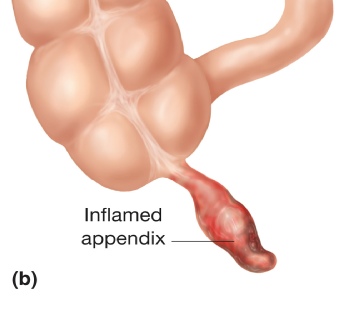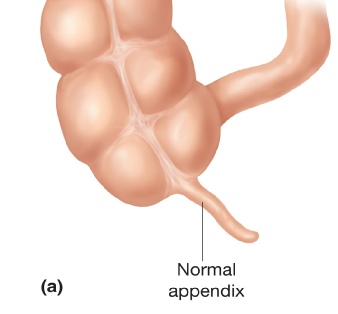 CONTACT US
CONTACT US
Dr Nico Coetzee
Dr Nico Coetzee
Dr Coetzee specializes in Laparoscopic and Open surgery including certain areas of Surgical Oncology
Dr Coetzee specializes in Laparoscopic and Open surgery including certain areas of Surgical Oncology
Dr Coetzee joined the Medi Clinic group at Somerset West in 2009..Previously active and involved in the evolution of Laparoscopic Surgery as a participant and as an educator at Tygerberg Hospital in the Western Cape.
Dr Nico Coetzee
Dr Coetzee specializes in Laparoscopic and Open surgery including certain areas of Surgical Oncology
Dr Nico Coetzee
Dr Coetzee joined the Medi Clinic group at Somerset West in 2009..Previously active and involved in the evolution of Laparoscopic Surgery as a participant and as an educator at Tygerberg Hospital in the Western Cape.
Dr Coetzee joined the Medi Clinic group at Somerset West in 2009..Previously active and involved in the evolution of Laparoscopic Surgery as a participant and as an educator at Tygerberg Hospital in the Western Cape.
Dr Nico Coetzee
Dr Nico Coetzee
Dr Nico Coetzee
Dr Coetzee specializes in Laparoscopic and Open surgery including certain areas of Surgical Oncology
Dr Coetzee specializes in Laparoscopic and Open surgery including certain areas of Surgical Oncology
Dr Coetzee joined the Medi Clinic group at Somerset West in 2009..Previously active and involved in the evolution of Laparoscopic Surgery as a participant and as an educator at Tygerberg Hospital in the Western Cape.
Dr Nico Coetzee
Dr Coetzee specializes in Laparoscopic and Open surgery including certain areas of Surgical Oncology
Dr Nico Coetzee
Dr Coetzee joined the Medi Clinic group at Somerset West in 2009..Previously active and involved in the evolution of Laparoscopic Surgery as a participant and as an educator at Tygerberg Hospital in the Western Cape.
Dr Coetzee joined the Medi Clinic group at Somerset West in 2009..Previously active and involved in the evolution of Laparoscopic Surgery as a participant and as an educator at Tygerberg Hospital in the Western Cape.
Dr Nico Coetzee
APPENDECTOMY
What is the appendix?
The appendix produces a bacteria-
What is a laparoscopic appendectomy?
Appendicitis is one of the most common surgical problems. One out of every 2,000 people has an appendectomy sometime during their lifetime. Treatment requires an operation to remove the infected appendix. Traditionally, the appendix is removed through an incision in the right lower abdominal wall.
In most laparoscopic appendectomies, surgeons operate through 3 small incisions (each ¼ to ½ inch) while watching an enlarged image of the patient’s internal organs on a television monitor. In some cases, one of the small openings may be lengthened to 2 or 3 inches to complete the procedur
Advantages of laparoscopic appendectomy
Results may vary depending upon the type of procedure and patient’s overall
condition.
Common advantages are:
Less postoperative pain
May shorten hospital stay
May result in a quicker return to bowel function
Quicker return to normal activity
Better cosmetic results
Are you a candidate for laparoscopic appendectomy?
Although laparoscopic appendectomy has many benefits, it may not be appropriate for some patients. Early, non-
How is laparoscopic appendectomy performed?
The words “laparoscopic” and “open” appendectomy describes the techniques a surgeon uses to gain access to the internal surgery site. Most laparoscopic appendectomies start the same way. Using a cannula (a narrow tube-
What happens if the operation cannot be performed or completed by the laparoscopic method?
In a small number of patients the laparoscopic method is not feasible because of the inability to visualize or handle the organs effectively. When the surgeon feels that it is safest to convert the laparoscopic procedure to an open one, this is not a complication, but rather sound surgical judgment. Factors that may increase the possibility of converting to the “open” procedure may include:
- Extensive infection and/or abscess
- A perforated appendix
- Obesity
- A history of prior abdominal surgery causing dense scar tissue
- Inability to visualize organs
- Bleeding problems during the operation
The decision to perform the open procedure is a judgment decision made by your surgeon either before or during the actual operation. The decision to convert to an open procedure is strictly based on patient safety.
What should I expect after surgery?
After the operation, it is important to follow your doctor’s instructions. Although many people feel better in just a few days, remember that your body needs time to heal.
You are encouraged to be out of bed the day after surgery and to walk. This will help diminish the risk of blood clots in your legs and of soreness in your muscles.
You will probably be able to get back to most of your normal activities in one to two weeks time. These activities include showering, driving, walking up stairs, working and engaging in sexual intercourse.
If you have prolonged soreness or are getting no relief from the prescribed pain medication, you should notify your surgeon.
You should call Doctor Coetzee and schedule a follow up appointment for about 1-
What complications can occur?
As with any operation, there are risks including the risk of complications. However, the risk of one of these complications occurring is no higher than if the operation was done with the open technique.
- Bleeding
- Infection
- Removal of a normal appendix
- A leak at the edge of the colon where the appendix was removed
- Injury to adjacent organs such as the small intestine, ureter, or bladder.
- Blood clot to the lungs
It is important for you to recognize the early signs of possible complications. Contact Doctor Coetzee if you have severe abdominal pain, fever, chills or rectal bleeding.
When to call your doctor?
Be sure to call your physician or surgeon if you develop any of the following:
- Persistent fever over 101 degrees f (39 c)
- Bleeding
- Increasing abdominal swelling
- Pain that is not relieved by your medications
- Persistent nausea or vomiting
- Chills
- Persistent cough or shortness of breath
- Purulent drainage (pus) from any incision
- Redness surrounding any of your incisions that is worsening or getting bigger
- You are unable to eat or drink liquids
This website is not intended to take the place of your discussion with your surgeon about the need for an Appendectomy. If you have questions about your need for an Appendectomy, your alternatives, billing or insurance coverage, or your surgeons training and experience, do not hesitate to ask Doctor V or his office staff about it. If you have questions about the operation or subsequent follow-




